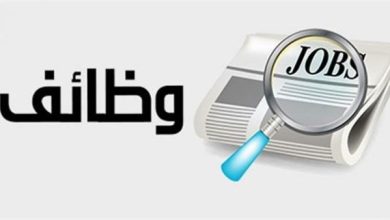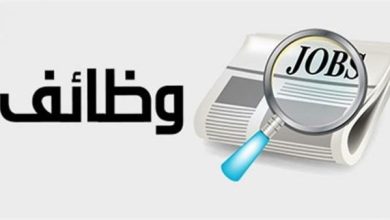Programme Associate (Monitoring Staff) , Service Contract – L6, Uttar Pradesh – 4 positions

.
WFP celebrates and embraces diversity. It is committed to the principle of equal employment opportunity for all its employees and encourages qualified candidates to apply irrespective of race, colour, national origin, ethnic or social background, genetic information, gender, gender identity and/or expression, sexual orientation, religion or belief, HIV status or disability.
WFP encourages female candidates and people with disabilities to apply.
VACANCY DETAILS
Type of Contract: Service Contract – SB3 – L6
No. of positions: 4
Duty Station: Lucknow/ Other districts of Uttar Pradesh (initial start in Lucknow, further job location will be assigned in districts of Uttar Pradesh)
Duration of assignment: 1 year (renewable)
Reporting to: Project Team lead in the State Rural Livelihood Mission, Uttar Pradesh and Programme Policy Officer (Nutrition) in the WFP Country Office in Delhi
Vacancy no. : 174268
Date of publication: 29-September-2022
Deadline of application: 14-October-2022
TERMS AND CONDITIONS
• This vacancy is open to Indian Nationals only.
• This vacancy is open for internal and external candidates. As per the WFP’s Recruitment & Selection Policy, the definition of “internal” is only applicable to WFP staff members holding a permanent, continuing or FT appointment.
• Only candidates under serious consideration will be contacted.
• A written test will be used for screening candidates.
• Only recommended candidates will be retained on roster for a period of two years and may be considered for similar positions from roster.
• The salary for this position is INR 90325/- per month, plus medical benefits as per WFP's plan. All tax liability for payments from this contract are to be borne by the subscriber.
JOB PURPOSE
WFP Collaboration with the State Rural Livelihood Mission (SRLM) and the Department of Women & Child Development (DWCD) in Uttar Pradesh
Aligned to this overarching vision around improved nutrition, WFP has been working in Uttar Pradesh across several Departments and with various stakeholders including the State Rural Livelihood Mission and the Department of Women & Child Development to ensure the availability and consumption of nutritious, quality assured and safe Supplementary nutrition through the Integrated Child Development Services (ICDS) scheme. Under this project, a total of 204 Supplementary nutrition production units are in process of being set up across the State to cater to ICDS requirements in 43 districts; these units will be run by women led microenterprises. Each unit will produce a variety of different food products for different ICDS beneficiary groups such as children between 6 months to 6 years of age, adolescent girls and pregnant/ lactating women. This model will then be expanded across the State in a phased manner to cover all the districts.
WFP works closely with both SRLM and DWCD for the roll-out of the supplementary nutrition production through a combination of technical assistance and direct support to set up the supplementary nutrition production units.
WFP will provide technical assistance at the State level and also to the various units being set up across the State, in tandem with the officials of SRLM. WFP technical assistance will be focussed primarily on the processes around the production of the supplementary nutrition. Post set-up, WFP will provide technical assistance for monitoring the implementation and production across the units; identifying gaps/ areas for improvement and helping to fill the gaps through proven solutions.
WFP has already set up block level production units in Bighapur, Unnao and Malwa, Fatehpur districts-these fully automated production plants function as Centres of Excellence are used for training workers from other districts for the scale up of the production units in the remaining districts in the State.
To support the roll out of this alternative model for production of supplementary nutrition, WFP in close collaboration with UPSRLM will set up a Project Management Unit in UPSRLM to efficiently support the implementation of the project. Under the PMU, staff with different skill sets will be positioned at various levels, including the placement of Senior Programme Assistants (Monitoring) at the State level within UPSRLM.
KEY ACCOUNTABILITIES (not all-inclusive)
The Regional Coordinator, under the direct guidance of the Project lead, SRLM and Programme Policy Officer (Nutrition) based at the WFP CO and the overall guidance of the Head of the Nutrition and School Feeding will be responsible for the following:
Project management:
• Assist in the planning, developing and implementation of various activities and processes in the Supplementary nutrition production units aligned with guidance from WFP and UPSRLM;
• Act as a point of contact for resolution of a range of operational queries and problems within the production units;
• Oversee and/or review the work of the unit, providing practical advice and guidance, to contribute to delivering objectives to agreed standards and deadlines;
• Support in organizing and conducting capacity building of the women led microenterprises on various project related aspects.
Monitoring of the project:
• Regularly visit the Supplementary nutrition production units in the districts assigned to monitor the implementation of the project, identify gaps in implementation at the Unit level and suggest mid-course correction to the unit staff in coordination with SRLM and WFP;
• Attend the monthly meetings of the units in the districts under responsibility assigned;
• Review the budgetary estimates and expenditure undertaken by each unit.
Documentation and knowledge management;
• Support in compilation and identify best practices in the implementation of the project in the different production units for wider dissemination;
• Prepare monthly reports on the progress of the project at the district level and at unit level for the units/districts under responsibility for sharing with all project stakeholders.
Coordination
• Coordinate with government counterparts at the district level across DWCD and SRLM as need be to facilitate implementation of the project;
• Liaise with project stakeholders for timely implementation and speedy resolution of issues identified in the projects.
Perform other related duties as required
CRITICAL SUCCESS FACTORS
• Ability to engage effectively with a wide range of actors from government, private sector and civil society.
• Very strong communications skills, both in writing and speaking
• Solid planning and problem-solving skills and action oriented
• Ability to work under tight deadlines and simultaneously manage multiple tasks in an autonomous manner;
• Maturity, initiative, courtesy, tact and ability to establish and maintain effective working relationships with people of different national and cultural backgrounds
• Ability to handle any other additional tasks as requested by the supervisor.
• Ability to undertake travel within the country.
This section is optional to describe additional responsibilities & knowledge required for the specific job.
STANDARD MINIMUM QUALIFICATIONS
Education:
• Completion of secondary school education. A university degree in Food Sciences, Nutrition, Public health, Management or Social sciences is preferable.
Experience:
• Minimum 6 years of progressively responsible work experience preferably in the development sector in partnership with the government/UN agency/INGO. Experience on supporting the implementation of projects or working on projects targeted at addressing malnutrition at the community level is desirable.
Knowledge & Skills:
• Excellent interpersonal skills required, including strong professionally communication ability;
• Advocacy and networking skills with a broad range of stakeholders including government, private sector, civil society, academia, NGO and international cooperation
• Knowledge of research methods with familiarity in quantitative and qualitative methods;
• Advanced computer skills with proficiency in Windows, Microsoft office;
• Knowledge of UN system would be an asset
• Knowledge of WFP programmes is an advantage
• Ability to work collaboratively with a diverse team of nutrition and food security experts across fourteen countries
• Tact and diplomacy
Languages:
Fluency in spoken and written English and Hindi; ability to speak in other Indian languages is a plus.
HOW TO APPLY
• Interested candidates are invited to apply via (https://www.wfp.org/careers/job-openings). Applications received on WFP Career page will be considered.
• WFP wants to ensure the recruitment process is fully accessible to people with disabilities. For accessibility requirements you may have, please write to us at email: India.hr@wfp.org with Subject line “Accessibility request for people with disabilities – VA No……. ”.
ABOUT WFP
The United Nations World Food Programme is the world's largest humanitarian agency fighting hunger worldwide. The mission of WFP is to help the world achieve Zero Hunger in our lifetimes. Every day, WFP works worldwide to ensure that no child goes to bed hungry and that the poorest and most vulnerable, particularly women and children, can access the nutritious food they need.
ORGANIZATIONAL CONTEXT
The World Food Programme (WFP), operating in India since 1963, aims to provide technical support to strengthening the government’s food safety-nets programmes in order to improve access to nutritious food for millions of vulnerable households throughout the country. Through its Country Strategic Plan (2019-2023), WFP India aims to support India in achieving their targets under Sustainable Development Goals 2 and 17. Strategic Outcome (SO) 2 of WFP’s current and forthcoming CSP is aimed at reducing all forms of malnutrition in India,
To facilitate India’s progress on the SDGs and in sustainably reducing malnutrition, WFP will focus on “People at high risk of malnutrition in India, especially women, children and adolescent girls, have improved nutrition by 2025” as laid down in Strategic outcome 2 of its CSP. This primarily translates into WFP working with National and State governments to improve the nutritional status of the population through introduction of nutritionally viable solutions and best practices in existing systems and enhancing the nutritional effectiveness of the three food-based safety nets namely the Targeted Public Distribution System (TPDS), the Mid-day meal (MDM) scheme and the Integrated Child Development Services (ICDS) scheme. Social behaviour change communications (SBCC) accompanies all activities to help target audiences to know more about the benefits of good nutrition, appropriate child feeding practices and appropriate health and hygiene practices.
.
All employment decisions are made on the basis of organizational needs, job requirements, merit, and individual qualifications. WFP is committed to providing an inclusive work environment free of sexual exploitation and abuse, all forms of discrimination, any kind of harassment, sexual harassment, and abuse of authority. Therefore, all selected candidates will undergo rigorous reference and background checks.





